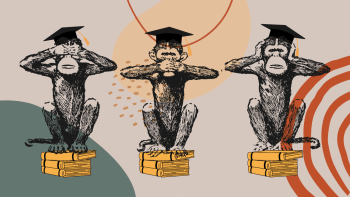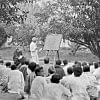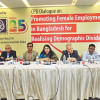Can university assessment make graduates more employable?

The Covid-19 pandemic has transformed almost every aspect of our lives. It has had a profound effect on the skills and competencies that labour markets require of graduates by accelerating the adoption of digital tools and increasing the demand for digital content. At the same time, the imperative to socially distance has made it impractical for universities to assess students using traditional methods, leading institutions to experiment with a variety of alternative assessment instruments. Nevertheless, universities can greatly enhance the employability of their graduates by strategically investing in some elements of these alternative assessment innovations.
The unseen exam was the mainstay of university assessment prior to the pandemic, and with good reason. The anonymised nature of exams creates a level playing field on which student work can be fairly evaluated. The unseen paper allows institutions to test the ability of students to apply what has been learnt to an unfamiliar context. The process of preparing for an exam teaches students to manage and retain information. The closed nature of the exam hall enables the institution to prevent collusion, personation, plagiarism, and other forms of academic misconduct. The time-limited nature of exams not only teaches students time management, but also how to cope with stress in high-pressure environments.
Despite these important advantages, a major weakness of the unseen exam is the limited relevance of the assessment mode to real-life situations. As many generations of students have wryly observed, it is difficult to think of a situation in which an employer would oblige an employee to answer pre-prepared questions in an empty room without access to any notes or other resources. For this reason, even before the pandemic, universities used presentations and reports to complement the unseen exam with assessment modes that honed skills valued in the labour market.
The demands of the labour market are constantly changing, and so are the relative importance of different skills. It is widely accepted that the pandemic has increased the premium labour markets place on digital competencies and proficiencies. So, while the ability to conduct a presentation in a boardroom remains an invaluable skill, in the post-pandemic digital economy, this skill must be complemented by the ability to simultaneously manage the live-streaming of that presentation to an online, remote audience.
The rapid pivot to digital technologies has not just affected the board room, but also the living room. There has been a seismic shift in the way that people consume content that is likely to endure after the pandemic. A recent BBC survey found that during lockdowns, UK adults spent 31 percent more time in front of a screen than in the year before. Even after the easing of lockdown measures, subscriptions to streaming services increased 71 percent from the year before. A Nielsen report found that podcast listenership in the US increased by 40 percent over the last three years, and recommends that brands invest in leveraging this medium in their marketing strategies.
In light of the above, universities would do well to equip their graduates with the skills necessary to engage with these burgeoning new markets. In addition to traditional assessment modes, we should also be asking students to submit their academic work in the form of podcasts, videos and blogs, aligning our curriculum more closely to a post-pandemic digital age.
An important advantage of using these formats is the ease with which they can be leveraged by students to create a portfolio for potential employers. It is straightforward to upload a video or a podcast from an assessment to YouTube or other publicly accessible platforms in a way that can easily be highlighted on CVs and LinkedIn profiles. Universities that are early adopters of these innovative assessment modes would enable their students to differentiate their CVs in an increasingly competitive graduate labour market.
As with any innovation, the adoption of new assessment modes comes with an element of risk. The main purpose of assessment is to provide a barometer of student learning. With videos and podcasts, however, slick production technologies can have a disproportionate effect on the perceived quality of the submission. As a result, those grading will need to be vigilant to prioritise substance over style when deliberating over submissions.
In addition to teaching, another important function of a university is to push forward the frontiers of knowledge on behalf of society. Although primary research is a valuable entity in its own right, the benefit to society from that research depends on the extent to which universities engage with the public. Universities – especially public-funded ones – have an obligation to ensure the effective dissemination of their research, and the increasing use of platforms that the public are already familiar with represents an important step in that direction.
Rumours of the demise of the unseen exam are greatly exaggerated. Compared to other assessment instruments, exams provide an exceptionally reliable and robust barometer of learning. For this reason, they should remain an indispensable part of a university's assessment portfolios. But universities should leaven their degrees with other, more innovative and employment-relevant forms of assessment. Reports and presentations will continue to play an important role in business and policymaking, and so should continue to feature prominently among the array of assessments. But so should blogs, videos and podcasts, too, the prominence of which have increased dramatically in the post-pandemic digital economy.
Prof Barry Reilly is a professor of econometrics at the University of Sussex.
Dr C Rashaad Shabab is a senior lecturer of economics at the University of Sussex.

 For all latest news, follow The Daily Star's Google News channel.
For all latest news, follow The Daily Star's Google News channel. 









Comments